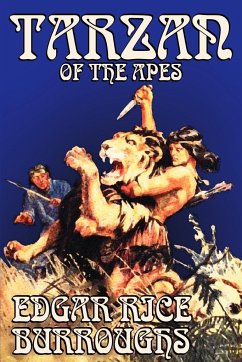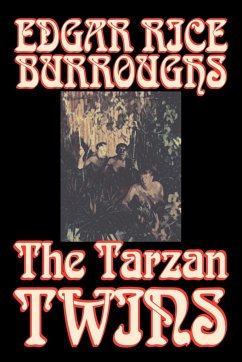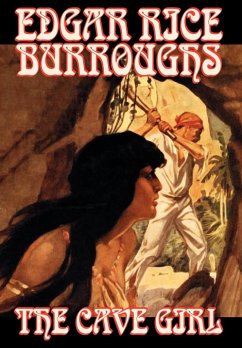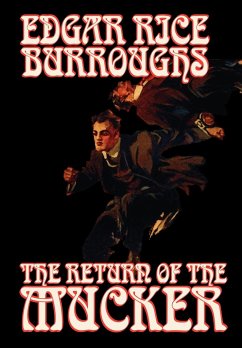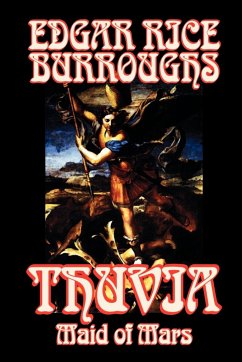
Thuvia, Maid of Mars by Edgar Rice Burroughs, Science Fiction, Classics
Versandkostenfrei!
Versandfertig in 1-2 Wochen
14,99 €
inkl. MwSt.

PAYBACK Punkte
7 °P sammeln!
The book does have some inventive and original ideas, including an autopilot and collision detection device for Martian fliers and the creation of the Lotharians, a race of ancient martians who have become adept at telepathic projection, able to create imaginary warriors that can kill, and sustain themselves through thought alone. Fortunately, though, Carthoris is every bit the swashbuckler that his father is. Princess Thuvia of Ptarth has been kidnapped by the vile Prince Astok of Dusar -- an abduction which nearly causes a world war on Barsoom. Young Carthoris, in his quest to free his belov...
The book does have some inventive and original ideas, including an autopilot and collision detection device for Martian fliers and the creation of the Lotharians, a race of ancient martians who have become adept at telepathic projection, able to create imaginary warriors that can kill, and sustain themselves through thought alone. Fortunately, though, Carthoris is every bit the swashbuckler that his father is. Princess Thuvia of Ptarth has been kidnapped by the vile Prince Astok of Dusar -- an abduction which nearly causes a world war on Barsoom. Young Carthoris, in his quest to free his beloved princess, runs across deserted cities, a forgotten kingdom, banths (10-legged Barsoomian lions), ethereal warriors, much swordplay, giant white apes, and on and on. . . . highly recommended.




